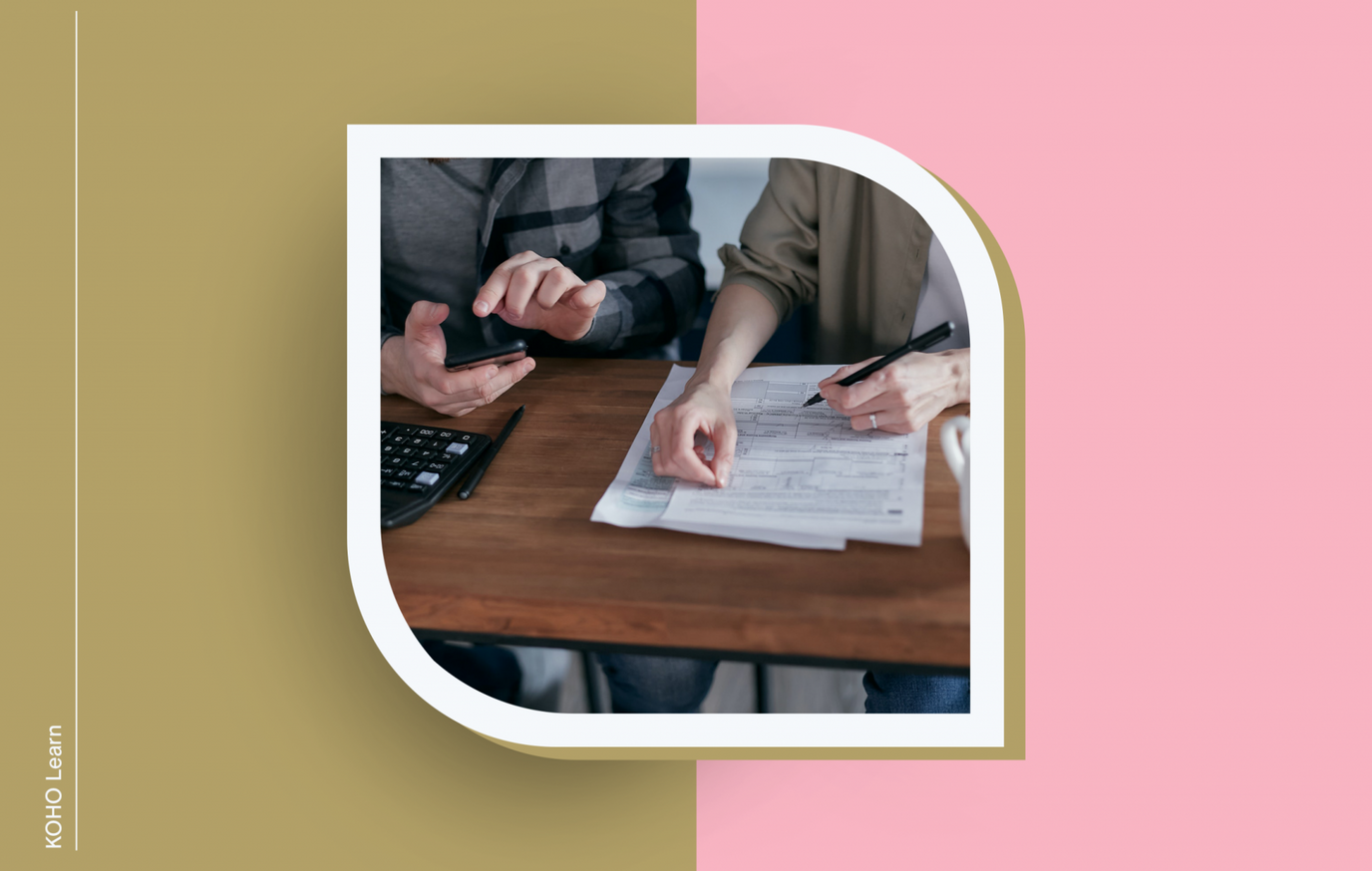
Rounding it up
The Canada Revenue Agency (CRA) offers multiple ways to pay your taxes in Canada.
You can pay your federal taxes either online, via mail, or in person.
Online payments are usually the fastest and easiest way to settle your tax bill in Canada.
Paying your taxes late can result in a range of penalty fees and interest charges, so it’s important to start your tax return as early as possible.
If you’re concerned that you can’t afford to pay your tax bill, contact the CRA directly so they can work with you to come up with a payment plan that works for your needs.
If there’s one thing that everyone dreads (except for accountants, of course), it’s taxes. Tax season can be a complicated, stressful, and even scary time in Canada, especially if you find out that you owe money to the Canada Revenue Agency (CRA).
But that raises the question: How do you pay your taxes in Canada?
Paying taxes in Canada starts with filing your tax return and identifying how much you owe both to the federal government and to your specific province or territory. From there, you can make payments to the CRA either online, via mail, or in person. Most provincial and territorial revenue agencies also accept these forms of payment for individual income tax bills.
We know how challenging it can be to navigate the confusing world of taxes in Canada, so we’ve put together this guide to doing just that. Up next, we’ll do a quick refresher on the basics of Canadian taxes and how you can file them before doing a deep dive into what you need to know to pay your taxes properly.
Canadian Taxes: The Basics
To get things started, we’ll first do a quick run-down of some essential information that any Canadian citizen or resident ought to know about paying taxes.
If you’re already comfortable with tax basics, you can go ahead and skip this section. But if you need a refresher on Canadian taxes, then you’ll want to keep reading.
Up next, we’ll give you an overview of the different kinds of taxes in Canada and how you can calculate how much you’ll owe at the end of the year.
What Kinds of Taxes Are There in Canada?
First things first, we should clarify that there are many different kinds of taxes in Canada. In addition to Goods and Services Tax (GST), which you pay on most transactions, there are also property taxes, social security taxes, payroll taxes, corporate taxes, and individual income taxes.
When most people talk about “paying taxes” in Canada, they’re typically referring to individual income taxes, so that’s what we’ll focus on here.
There are both federal income taxes (paid to the CRA) and provincial/territorial income taxes, which are paid to each province or territory’s respective revenue agency. Since we can’t possibly talk about the specifics of each province or territory’s tax structure, we’ll primarily focus on federal income taxes in this article.
How to Calculate Your Income for Canadian Taxes
The first step in paying your income taxes in Canada is figuring out how much money you actually earned throughout the year.
Income can come from various sources, including employment, self-employment, investments, pensions, government benefits, and tips. The most common type of income in Canada is easily employment income, which is what you earn at most jobs.
If you’re an employee in Canada, you’ll receive a Form T4, which is a statement that lists all of the money you earned during the year and what taxes you’ve paid for that income. Your T4 will also list any contributions you made to relevant sources, such as your retirement plan or pension.
In the event that you have other sources of income in Canada, you’ll need to collect any relevant tax forms that you received during the year for these payments as you’ll need this information to file your taxes.
Tax Deductions & Credits in Canada
After you calculate how much you’ve made during the year for your tax return, it’s time for the fun stuff: deductions and credits.
There are dozens of tax deductions and credits that eligible residents and citizens can claim in Canada. Some of these deductions and credits are for families with children while others are for students or people with disabilities.
Each of these deductions and credits can reduce the amount of tax you owe, so it’s worth claiming as many as you’re legally qualified for. Determining your eligibility for these deductions and credits can be tricky, though, so consult an accountant if you have any questions.
How Do I File My Taxes in Canada?
Congrats! At this point, you have all of the information you need to file your taxes. Now you just need to, well, actually file your tax return.
There are two basic ways to file your taxes in Canada: By yourself or through an accountant. We’ll take a quick look at the differences between these two options so you can determine which one is best for your needs.
Do Your Own Tax Returns
If you have a relatively straightforward tax situation or you feel confident that you can file your return on your own, you can certainly do so in Canada.
The CRA lets you file your own tax return either online or in the mail. Filing online is typically the fastest and easiest way to get your taxes done before the deadline (which is typically April 30th, by the way, unless you’re self-employed—in that case, it’s June 15th). But, you can also send in your information via Canada Post if you prefer to do your taxes on paper.
There are also third-party tax processing softwares out there that you can use. Each of these services offers something slightly different, but most are very user-friendly. Keep in mind that you normally need to pay a fee to use one of these softwares, but filing online directly through the CRA is free.
Hire an Accountant
For those of us who aren’t exactly fans of crunching numbers, hiring an accountant is usually the best way to get through tax season. Hiring an accountant is also a great idea if you have a complicated tax situation or if you simply want to make sure that you’re claiming all of the credits and deductions that you’re eligible for.
Of course, hiring an accountant is normally the most expensive way to file your taxes. But if you have any concerns about your tax return in Canada, hiring a Chartered Professional Accountant (CPA) is a worthwhile option.
How Do I Pay My Taxes in Canada?
If you’ve stuck with us this far through the article, you know all about the different kinds of taxes that you have to pay in Canada and how you can actually file your tax return with the CRA.
But what happens if you file your return and learn that you owe money? How do you pay your taxes in Canada?
There are 3 ways to pay your federal taxes in Canada:
Online Payments – The CRA lets you pay your taxes online via online banking, Interac Debit, Interac e-Transfer, wire transfer, debit card, credit card, pre-authorized debits, and even PayPal. Online payments are typically the fastest way to get your tax bill settled in Canada and they are typically considered paid once the payment is authorized.
Mail Payments – If you’d prefer to pay your Canadian tax bill by mail, you can send your payment as either a cheque or money order. Note that mail payments are considered paid on the date that the CRA receives your payment, so be sure to mail in your cheque or money order well in advance of the tax due date.
In-Person Payments – If you’d prefer to pay your taxes in person, you can pay your bill with debit or cash at a Canada Post location (note that service fees apply for this payment method). You can also pay at most Canadian banks, credit unions, and financial institutions using a cheque or debit card and a personalized remittance voucher.
What Happens if You Can’t Pay Your Taxes in Canada?
No one likes getting a surprise tax bill, but sometimes you end up owing quite a bit more money to the CRA at the end of tax season than you initially expected.
If you can’t afford to pay your taxes in full right now, you have a few options. The first option is to set up a payment arrangement with the CRA. In these situations, the CRA will work with you to come up with a payment plan that suits your needs. Note that there is normally an interest rate associated with payment plans, but they’re typically lower than what you’d get with a personal loan.
Alternatively, if you can’t afford to pay your taxes at all, you’ll still want to be proactive about your situation. Contact the CRA directly to discuss your circumstances and to see if you can find a way to create a payment plan for your tax bill. A CRA agent will work with you to determine a course of action that’s possible given your unique situation.
However, you don’t want to get yourself into a situation where you simply don’t pay your taxes because you can’t afford to do so. There are consequences to not paying your taxes, including garnished wages, asset seizure, and legal action. Be proactive about your situation and contact the CRA right away if you’re concerned about your ability to pay your tax bill.
SPEND SMARTER. SAVE FASTER
What Happens if You Pay Your Taxes Late in Canada?
We’ve all been there: Tax season sneaks up on you and, before you know it, April 30th has come and gone, but you’ve yet to pay your taxes. Uh oh.
So what happens if you pay your taxes late in Canada?
Paying your taxes late in Canada typically results in a penalty and some late-payment interest charges.
Late tax payment penalties typically start at 5% of your owed tax balance and they increase from there. The rate normally increases every month until you pay your taxes. You may also be charged additional fees or penalties if you made a late or insufficient tax installment payment.
All of these fees and penalties can add up quickly. That’s why it’s so important to pay your taxes on time whenever possible. But if you do accidentally forget to pay your taxes on time, be sure to file your return as soon as possible. If you can’t afford to pay your late penalties or interest charges, contact the CRA to see if you can request a cancellation or waiver for these fees.
The Secret to Tax Season? Get Started Early
Filing and paying taxes in Canada can be stressful, but it doesn’t have to be that way. Getting started early on your tax return can give you the time you need to work your way through the tax filing process at your own pace.
Once you’ve filed your taxes, your next step is to see whether you’re getting a refund or if you owe money to the CRA. If you do owe money, you can make your tax payment in a number of different ways, including online, via mail, or in-person at a post office or financial institution.
So there you have it, folks: That’s paying your taxes in a nutshell. Regardless of how you choose to pay your taxes this year, be sure to do so on time so you can avoid interest penalties and fees. That way, you can use your money for the things that matter most to you.

About the author
Gaby Pilson is a writer, educator, travel guide, and lover of all things personal finance. She’s passionate about helping people feel empowered to take control of their financial lives by making investing, budgeting, and money-saving resources accessible to everyone.
Read more about this author